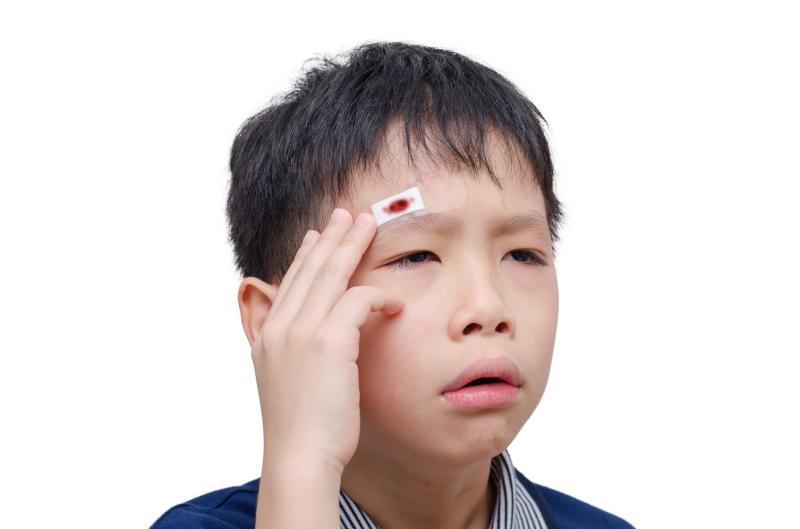 The quality of a child's relationship with parents may be affected if the former suffered mild traumatic brain injury
The quality of a child's relationship with parents may be affected if the former suffered mild traumatic brain injurySleep-wake disturbances (SWDs) are common in children surviving critical care for acquired brain injury, a new study has found.
Researchers prospectively assessed 78 children (aged ≥3 years; 60 percent male) with acquired brain injury. Standardized T-scores in the Sleep Disturbances Scale for Children were used to quantify SWD; scores ≥70 were defined as severe SWD. Only children with brain injuries acquired within 3 months of critical care hospitalization were eligible.
The mean total T-score in the overall cohort was 39.4±10.4, which was significantly greater than average healthy children cohorts (p<0.001). More than half (56 percent; n=44) of the participants were positive for SWDs, while in 46 percent (n=36) the disturbances were severe.
Those with SWDs tended to be older and had chronic conditions before admission. Multiple logistic regression analysis, controlled for demography, found that the presence of a pre-admission chronic condition was the only significant and independent predictor of SWF (adjusted odds ratio, 5.4, 95 percent confidence interval, 1.3–21.9).
In terms of manifestation, majority (68 percent; n=30) of the participants displayed multiple SWD phenotypes. Disorders of initiation and maintenance of sleep, however, emerged as the most common phenotype, detected in almost half of the SWD patients (47 percent; n=37). Other frequently observed phenotypes were sleep-wake transition disorders and somnolence.
Sleep breathing disorders, arousal disorders and hyperhidrosis were less common, but were nevertheless reported.
The present findings emphasize “the importance of evaluating SWD after discharge. More research is needed to identify effective interventions to prevent and treat SWD and determine if treating SWD can also augment recovery from acquired brain injury in other important domains,” said the researchers.